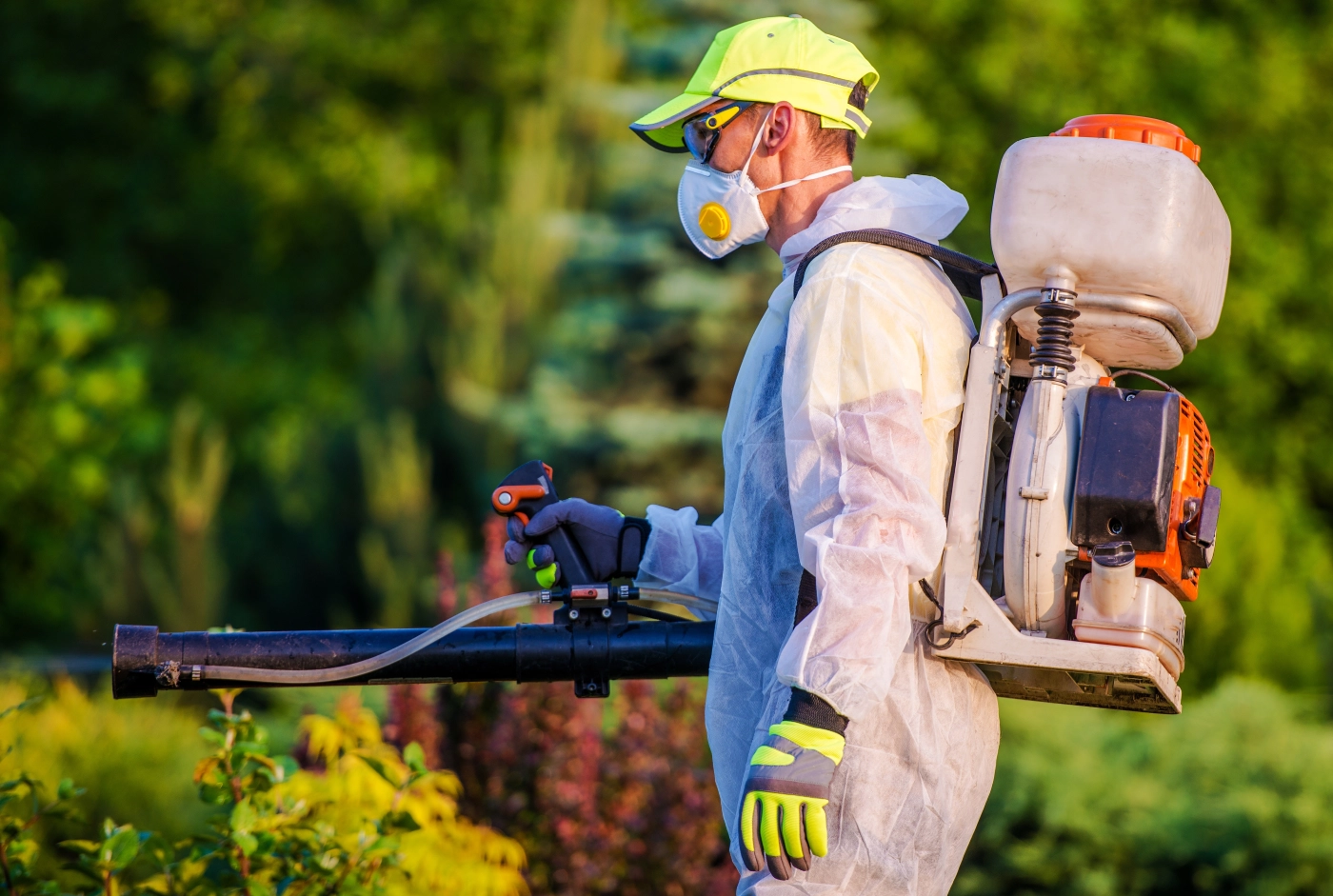Pest Control Clovis: Do Away With Pests Once and for All
Comprehending the Numerous Methods to Parasite Control: A Comprehensive Guide

All-natural Bug Control Approaches
Using green methods such as companion planting and organic insect control is essential for properly handling insects in farming settings. Companion growing involves expanding different crops in proximity to prevent insects, boost nutrient uptake, and enhance overall plant health.
Organic pest control entails introducing all-natural predators or virus to control pest populaces. Ladybugs, as an example, prey on aphids, managing their numbers without the demand for chemical pesticides. One more instance is making use of Bacillus thuringiensis (Bt), a microorganism that targets specific insect parasites while being harmless to people, animals, and useful insects.
These environment-friendly approaches not only minimize the reliance on artificial pesticides however additionally help protect biodiversity and dirt health. By integrating all-natural pest control approaches into agricultural methods, farmers can attain sustainable insect monitoring while minimizing negative influence on the environment.

Chemical Bug Control Solutions
Along with all-natural pest control methods, the use of chemical bug control solutions plays a considerable function in successfully taking care of pest populaces in farming settings. Chemical pest control solutions are formulated to target particular insects that may trigger comprehensive damage to crops. These services typically consist of artificial pesticides that are developed to remove bugs swiftly and effectively.
One of the vital advantages of chemical insect control solutions is their performance in regulating pest invasions on a big range. Farmers can apply these services utilizing various methods such as splashing, airing out, or seed treatment to safeguard their crops from harmful pests, weeds, and conditions. Furthermore, chemical insect control services are relatively very easy to apply and can offer rapid outcomes, assisting farmers safeguard their returns and reduce financial losses.
However, it is essential to utilize chemical pest control remedies sensibly to minimize prospective negative effects on the setting, non-target microorganisms, and human health. Proper application strategies, adherence to safety standards, and regular tracking are crucial to make sure the responsible use chemical parasite control services in farming practices.
Biological Parasite Control Approaches
Biological bug control comes close to take advantage of all-natural killers or microorganisms to take care of insect populaces in farming settings successfully. This approach provides a green and sustainable service to pest administration, lowering the reliance on synthetic chemicals and decreasing injury to the environment. One typical biological control technique is the intro of all-natural enemies, such as ladybugs or parasitic wasps, to target certain bugs. These killers feed on the insects, assisting to regulate their populaces naturally - pest control clovis.
Another biological control method involves using virus like viruses, bacteria, or fungis to infect and kill parasites. These microbial representatives can be splashed on crops or presented right into the soil to battle numerous bugs without harming advantageous insects or various other wildlife. Additionally, the usage of scents to disrupt the breeding patterns of insects is another reliable biological control technique. By interfering with their recreation, this approach aids to minimize bug populaces without the demand for chemical intervention. In general, organic insect control methods use a sustainable and targeted option to pest management in farming.
Integrated Pest Administration (IPM)
Integrated Pest Administration (IPM) is a comprehensive technique that incorporates various bug control strategies to effectively handle and decrease pest populations in agricultural systems. IPM concentrates on lasting prevention of insects with a mix of biological, cultural, physical, and chemical control techniques. By incorporating these various methods, IPM aims to minimize dependence on chemical pesticides, minimize environmental effect, and advertise lasting parasite management practices.
One secret element of IPM is making use of organic controls such as all-natural predators, parasites, and pathogens to control insect populaces. This technique uses the power of nature to keep an equilibrium between insects and their natural opponents without triggering damage to the atmosphere.
Furthermore, IPM includes social methods like crop rotation, cleanliness, and environment adjustment to produce undesirable read the full info here conditions for insects and disrupt their life cycles. Physical controls such as obstacles, catches, and mulches are also utilized to stop parasite discover here problems.
Physical and mechanical Parasite Control Strategies
Using non-chemical techniques, such as mechanical and physical parasite control methods, is a critical facet of detailed insect management approaches, developing upon the foundation of Integrated Parasite Administration's holistic strategy. Mechanical bug control involves making use of physical barriers or catches to stop insects from accessing and harming crops or frameworks. This technique can include methods like installing displays on home windows, making use of row covers in agriculture, or using sticky traps to capture bugs.
Physical bug control techniques, on the other hand, concentrate on directly eliminating bugs via physical means. Making use of warmth therapies to remove bed bugs or vacuuming up insects like crawlers or ants can be efficient means to take care of infestations without the usage of chemicals. By including these mechanical and physical bug control strategies right into an Integrated Parasite Monitoring strategy, specialists and individuals can lower reliance on pesticides while still effectively handling pest populaces and decreasing damage.
Final Thought

In enhancement to all-natural insect control techniques, the application of chemical parasite control options plays a substantial role in successfully taking care of pest populations in farming atmospheres.One of the key benefits of chemical insect control remedies is their efficiency in regulating pest problems on a large scale.Integrated Pest Monitoring (IPM) is a detailed approach that integrates various check my site insect control strategies to properly manage and decrease pest populations in farming systems.Utilizing non-chemical approaches, such as mechanical and physical bug control strategies, is a vital aspect of thorough bug management approaches, developing upon the structure of Integrated Parasite Monitoring's holistic method. By including these mechanical and physical bug control techniques right into an Integrated Pest Administration strategy, specialists and people can reduce reliance on pesticides while still successfully decreasing and managing pest populations damages.